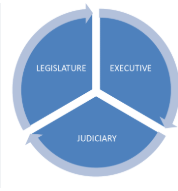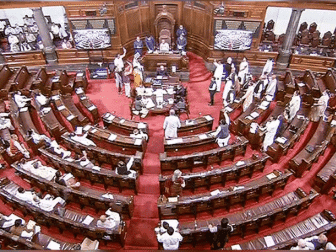|
The government operates by dividing its functions among three organs: legislative, executive, and ___ functions. |
Card: 1 / 32 |
|
True or False: The executive function of government is responsible for making laws. |
Card: 3 / 32 |
|
False. The executive function is responsible for implementing laws, while the legislative function is responsible for making them. |
Card: 4 / 32 |
|
Monarchy is characterized by ___ authority concentrated in the hands of ___ person. |
Card: 5 / 32 |
|
True or False: In a democracy, the power is typically concentrated in a small group of people. |
Card: 7 / 32 |
|
True or False: In a dictatorship, accountability to citizens is a fundamental principle. |
Card: 11 / 32 |
|
In a parliamentary system, the executive is accountable to the ___ for its actions. |
Card: 13 / 32 |
|
True or False: In a presidential system, the executive and legislative branches are closely connected. |
Card: 15 / 32 |
|
False. In a presidential system, the executive operates independently from the legislature. |
Card: 16 / 32 |
 Unlock all Flashcards with EduRev Infinity Plan Starting from @ ₹99 only
|
|
The unitary form of government is characterized by ___ between the central government and local governments. |
Card: 17 / 32 |
|
True or False: In a federal government, local governments are considered part of the central government. |
Card: 19 / 32 |
|
False. In a federal government, power is divided between the central government and individual states or territorial subdivisions. |
Card: 20 / 32 |
|
The Indian Parliament consists of the Lok Sabha and the ___ which represents states and union territories. |
Card: 23 / 32 |
|
The Legislature serves to represent the will of the state in a ___ and to enact laws that regulate institutions for specific purposes. |
Card: 25 / 32 |
|
True or False: The Parliament exercises control over finances to ensure executive accountability without any checks on the Council of Ministers. |
Card: 27 / 32 |
|
False. The Parliament exercises control over finances to ensure executive accountability through Article 75(3), which states the collective responsibility of the Council of Ministers to the House of the People. |
Card: 28 / 32 |
|
True or False: The executive has the authority to issue ordinances in India when Parliament is in session. |
Card: 31 / 32 |
|
False. The executive can only issue ordinances when Parliament is not in session. |
Card: 32 / 32 |





























